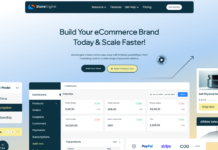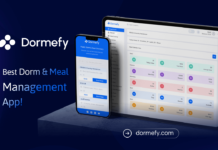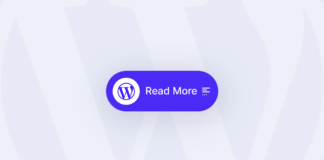One of the most influential and popular website builders is WordPress. More than 43.1% of websites use it, and its usage is increasing annually. Unquestionably, WordPress is one of the greatest technologies to employ while building a new website.
Sadly, it might be difficult to know where to start with your WordPress training. What ought you to know? What should you do first? When will it be finished? The entire procedure may be unclear and challenging to begin due to these and other issues.
Everything you need to know about learning WordPress will be covered in this article. We’ll also go through the finest, totally free tools to get you going.
Table of Contents
Why Learn WordPress?
A way of expressing that you may develop any kind of website using it. More than 43.1% of websites on the internet are run by WordPress. There are millions of websites utilizing WordPress to make money, and it creates thousands of job possibilities globally.
WordPress gives users a chance to do wonderful things like share stories and ideas, create communities, and earn money. It is the best way for small companies to have an online presence, and it is also affordable enough for bloggers to start their first blog.
The most well-known eCommerce platform, WooCommerce, is also powered by WordPress. Millions of both large and small internet shops utilize it. WordPress may be used to launch an online store (without writing any code). WordPress is simple to customize and allows you to create any type of website you can think of thanks to its abundance of plugins and themes.
Why should I learn WordPress?
As long as you are ready to put in a few hours every day for a week, learning WordPress is simple. You would require the capacity to follow directions as well as some very fundamental search abilities, such as the capability to use search engines like Google.
Yes, you can code a website without knowing HTML or any other programming language. You don’t need to know them to create your first WordPress website, but it will be useful to know them in the future.
The bulk of WordPress users, who have been using it for years, lack programming or coding expertise. Similar to how you did, many prosperous WordPress developers today work as full-time web designers and developers.
How Much Time Would WordPress Learning Take?
As a result, it is clear that knowing WordPress is worthwhile. How long will it take you to learn, though? Do you need to invest months or even years in order to establish a simple website?
The quick response is: Definitely not. In a week or less, you can almost learn all there is to know about WordPress. What if, however, you wish to learn WordPress? Thus, a more detailed response is required.
- Beginner: Even if you’ve never worked in web development before, you can pick up the fundamentals of WordPress in a matter of weeks or months. You may learn how to install WordPress, build a website, and add content from a variety of online tutorials and courses.
- Intermediate: After a few months or a year, you can acquire more complex WordPress ideas if you have some prior web development expertise. Learn how to manage users and permissions, build custom pages and posts, and configure WordPress themes and plugins.
- Advanced: You should prepare to invest several months or perhaps years in understanding the platform if you want to work as a WordPress developer. You’ll need to understand how to deal with WordPress APIs as well as PHP and MySQL coding. You can learn how to create WordPress themes and plugins from a variety of online tutorials and courses.
Whatever your level of experience, you can learn WordPress using a variety of tools. You may learn how to utilize this robust platform to build a stunning and useful website with a little time and effort.
WordPress Free
You don’t have to spend any money to learn about WordPress. There are countless free WordPress lessons available on websites, in videos, on YouTube, and in other formats. Don’t worry if you’re on a tight budget because you won’t need to make any purchases.
There are several resources that need payment that, if you don’t mind spending a little money, could be helpful.
But once more, they are not necessary to understand how to use WordPress. They only offer a few more narrowed-down or in-depth examinations of certain subjects.
Getting Started Learn WordPress for Free
It’s time to become familiar with WordPress! Let’s discuss some of the top free tools available for learning WordPress.
1. WordPress Codex

WordPress codex One of the best places to start is the official WordPress website. There are many free manuals and other resources there.
A collection of online resources for learning WordPress may be found in the WordPress Codex. It contains connections to several walkthroughs, such as WordPress tutorials, a FAQ, and a ton more. The majority of the materials are text-based articles, however, WordPress.tv has a lesson library that is video-based.
Moreover, WordPress provides live events on certain topics known as workshops. The majority of them are available as videos that may be seen later.
2. SkillJet Academy

Astra and SkillJet Academy are partners, and SkillJet Academy is a collection of courses that instruct you in business, sales, programming, SEO, WordPress, and other technical subjects. It offers both free and cost-based courses. Industry leaders and top specialists in each subject teach all of the courses.
WooCommerce Beginner Guide and WordPress Beginner Guide are two free courses that are designed for beginners and teach the fundamentals of WordPress. You may learn how to install WordPress, how to build an online store, and other basic WordPress skills from each of them.
3. WPinLearn Blog and YouTube Channel
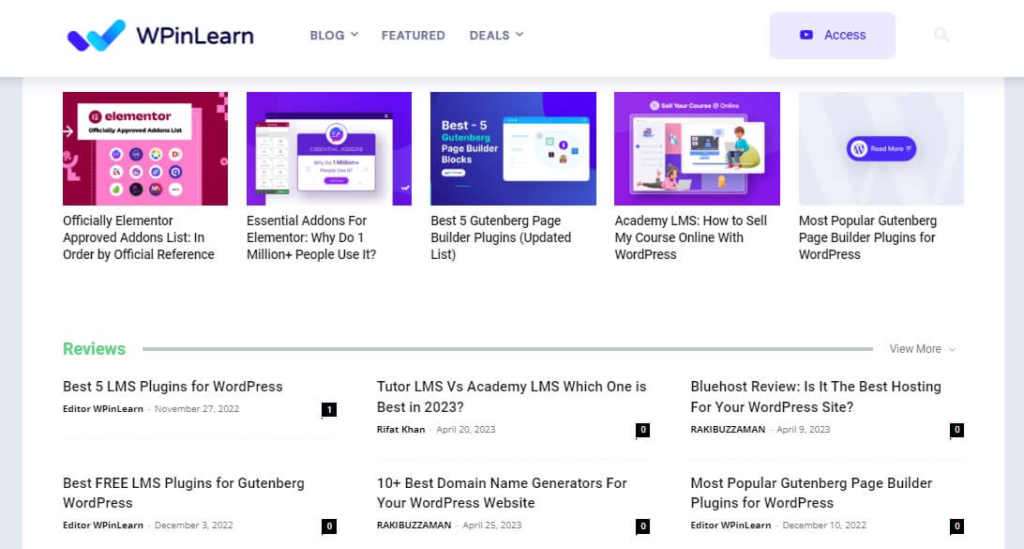
The WPinlearn site at our company has a ton of free WordPress guides. We release a new guide on a different subject every day, covering anything from the greatest WordPress plugins and themes to how-tos, walkthroughs, and other helpful resources.
We also have a YouTube channel where you can find a ton of instructional videos on all things WordPress-related.
4. Choose A Guide Specific To The Type Of Website You Are Creating
Examining the kind of website you intend to build is one simple way to learn how to use WordPress. for instance
- Look for tutorials on creating your own online store, utilizing eCommerce plugins, and other related subjects if you’re building an eCommerce website.
- Find tutorials on setting up blogs if you’re beginning one.
- Read up on the various membership plugins if you’re setting up a membership scheme.
Following a guide like this will no doubt save you a ton of time and help you avoid wasting valuable resources on learning things that you don’t need to know.
5. Google: Finding Free Tutorials Online

On a side aside, knowing how to Google is a valuable skill. Try Google it if you want to learn more about anything specific. Very likely, someone else has previously posed your query and received beneficial responses.
One piece of advice for using Google searches. Add quote marks around your precise words, “like this.” This will guarantee that the phrase you’re looking for appears in all of the search results. If you exclude the terms, some results might not be relevant.
6. Learn Free YouTube Video
Here are some tips on how to learn WordPress from YouTube:
- Start with the basics: You can learn the fundamentals of WordPress from several YouTube tutorials, including how to install it, write a new blog post, and add pages.
- Find a tutorial series that works for you: Find a series of WordPress tutorials that is well-paced and simple to follow among the numerous available on YouTube.
- Don’t be afraid to ask questions: Ask questions in the video’s comments area or on a WordPress forum if you run into trouble.
Perfectionism is attained through practice. Practice is the key to learning WordPress. Create your own website or blog once you have a basic grasp of how WordPress functions.
Some Basic Things to Learn About WordPress
After going over some frequently asked questions and introducing you to a variety of learning tools, let’s discuss the material you’ll need to study. Even though you may spend your entire life studying how to make websites, the fundamentals can be picked up very quickly.
You need a Domain to create a website. You’ll need a name for your website once you have a concept for it!
A domain name can be purchased quite easily. The cost of a new domain name varies depending on the TLD (the last component of the domain, such as “.com,” “.net,” etc.), but it typically costs around $10 a year.
Also, you will need web Hosting. It’s time to buy a web hosting service after acquiring your domain name. There are many other hosts available, but SiteGround, GreenGeeks, or Hostinger are three that we suggest.
Most servers allow you to instantly link your domain name to your hosting bundle when you sign up for one. Or, you may just buy the domain along with the hosting plan.
Important Basic Learning of WordPress Dashboard

The “Dashboard” is the name of the WordPress user interface. You can control every aspect of your site from there.
The Dashboard is rather simple to use. Simply choose an item from the menu on the left to move around. For instance, you may access posts by selecting the Posts menu option.
If you hover over some objects, you’ll find that they also have submenus. For instance, the Themes page may be found by selecting the Appearance menu option. Moreover, adding a new plugin or theme frequently results in the addition of a new menu item to the dashboard.
Getting Familiar With Themes
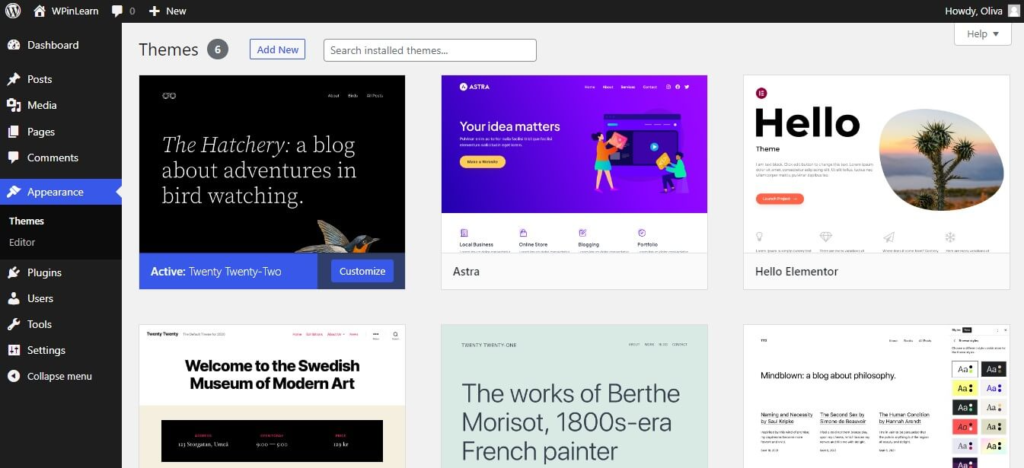
Your website’s appearance is controlled by WordPress themes. Themes are ready-made designs that you may install and modify for your website.
For WordPress, thousands of free and paid themes are available. The WordPress Themes directory offers free theme downloads. You may visit commercial theme stores like StudioPress, Elegant Themes, Themify, etc. for premium themes.
A theme should strike a balance between an attractive appearance and useful functions. A decent theme does not always have to include a lot of features. For help selecting the ideal WordPress theme for your website, see our guide.
Getting Familiar With Plugins
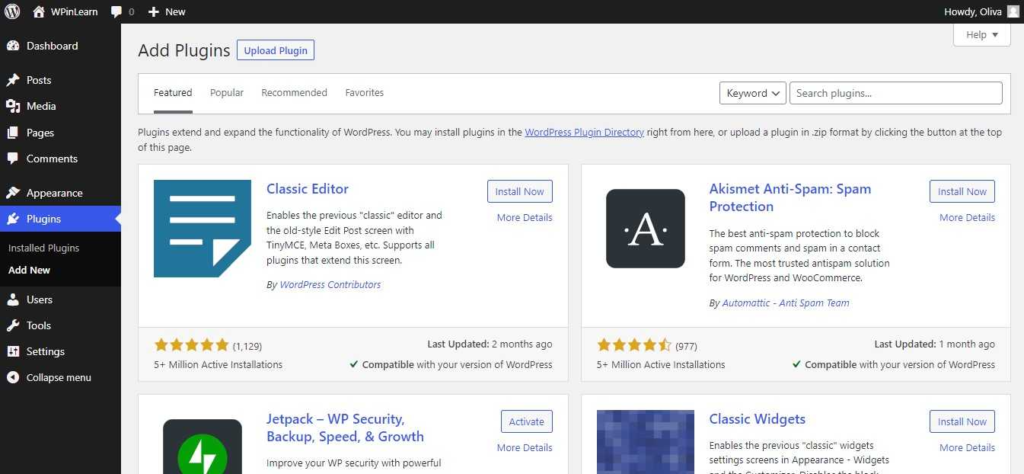
Another important component of the WordPress ecosystem is plugins. What precisely is a plugin? A plugin essentially merely adds a certain capability to your website.
You may discover a plugin for almost everything, as there are more than 60,433 of them. There are both free and paid plugins, similar to themes. Paid plugins are often obtained directly from the developer or downloaded via the WordPress plugin archive.
Go to Plugins in your WordPress sidebar to manage your existing plugins or add new ones to your website.
Customizing WordPress for Your Own Needs
Customizing Your website may be customized and tailored using WordPress. To establish your site’s general style and layout, you may pick from thousands of themes. Plugins also increase functionality, whether you want e-commerce capabilities or a contact form.
You may simply alter the code or make your own templates for more intricate customization. You can change settings, menus, widgets, and other things inside the admin dashboard. In general, personalizing WordPress gives you the ability to design a one-of-a-kind website that complements your brand and goals.
You may change your website to fit your particular demands and tastes by modifying WordPress. You may alter the look and layout of the site to make it more aesthetically attractive by selecting from a large range of themes. Also, the vast ecosystem of plugins enables you to easily increase functionality.
There is a plugin for practically any need, whether you want to integrate social media, optimize your site for search engines, or improve the user experience. If you know how to code, you may go farther with customization by directly altering the code, giving you the ability to make accurate edits and changes.
WordPress Page Builder
Without using any code, WordPress page builders are plugins that let you create your pages from scratch just inside the WordPress dashboard.
Starting from scratch to create a website might take a lot of time and money. Use a drag-and-drop website builder instead, which is typically less expensive and simpler to use.
You can quickly drag and drop pieces to create the precise layout you desire using a page builder. Also, since the majority of page builders are entirely responsive, your website will look fantastic on any device.
Without writing a single line of code, you can create, update, and adjust the design of your website using the WordPress page builders.
The most popular page builders include Elementor, and Divi.
WordPress Block Editor
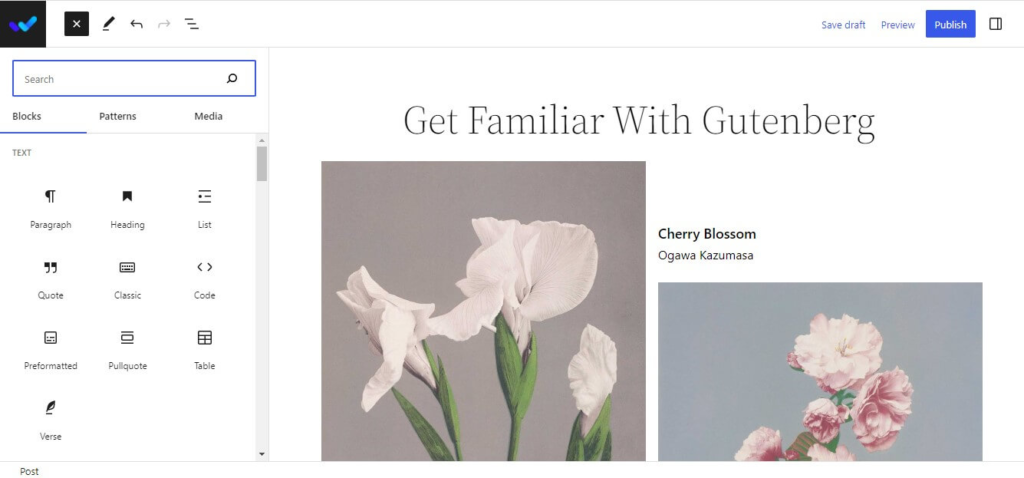
WordPress has integrated Gutenberg, a relatively new page-building technology. Because it is WordPress’s future, it is evolving pretty quickly. It has an editor that is simple to use for creating pages and articles.
The foundation of Gutenberg is a framework of “blocks,” which are little pieces of material that you may add to build your website. There are several sorts of blocks, such as paragraphs, lists, photos, videos, social media, and many more.
Although using Gutenberg is rather simple, making the effort to understand how to complete particular activities can undoubtedly save you time!
Given that Gutenberg represents the future of WordPress, it’s a good idea to understand how to use it while getting started with WordPress.
Learning WordPress Is Easy
You should be rather confident in your WordPress knowledge at this stage. Although learning might at first seem perplexing and daunting, mastery can be attained quickly. WordPress is unquestionably the best option for you if you’re wanting to build a new website.
While mastering WordPress might take time, learning the fundamentals can be done in a few hours. There are materials available to assist with learning at whichever level you choose.
In this article, we first discussed the benefits of learning WordPress. Afterward, we went through everything you’ll need to know, from posts to widgets, plugins, and page builders, as well as everything in between.
We hope this article helped you learn WordPress in 3 days or more. If you liked this post, then please subscribe to the WPinLearn YouTube Channel for WordPress video tutorials. Join the WPinLearn community and follow us on Twitter.
FAQs: Frequently Asked Questions
What do I need to learn WordPress?
You must have a fundamental knowledge of computers and the internet. You’ll also need to be fast to pick up new information and follow directions.
What are the best ways to learn WordPress?
The best ways to learn WordPress are by taking online courses, reading tutorials, and practicing on your own.
What are some of the most important things to learn about WordPress?
The following are some of the most crucial WordPress concepts to understand:
1. How to install WordPress?
2. How to create pages and posts?
3. How to customize your website’s look and feel?
4. How to install plugins?
5. How to secure your website?

